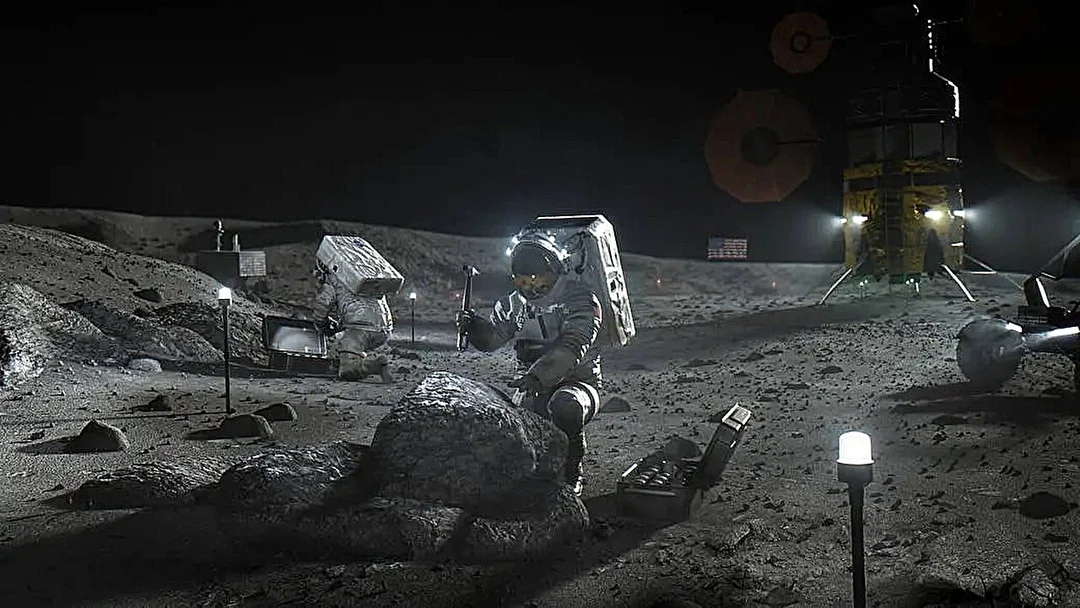
Lunar Gold Rush? Balancing Resource Exploitation on the Moon for All
The moon, once a distant dream of exploration, is now firmly in the crosshairs of nations and corporations eager to unlock its vast resources. But as the race to the lunar surface intensifies, a critical question arises: how do we ensure the equitable and sustainable use of these resources for the benefit of all humanity?
A recent paper by Marissa Herron and Therese Jones of NASA's Office of Technology, Policy, and Strategy, along with Amanda Hernandez of BryceTech, delves into this pressing issue. Their work highlights the potential for conflict over limited lunar resources, such as water, and proposes a framework for navigating these challenges. The core question is: Who gets access to what, and how can we ensure fairness?

The paper outlines a three-step process for NASA's Moon to Mars plan, beginning with mapping out the objectives and resource requirements. Next, is creating a "Catalog" of potential "concerns" that could disrupt resource utilization, encompassing everything from water usage to orbital locations. Finally is the "Preservation" segment, involves developing mitigation plans that could include technological advancements, operational mandates, or policy practices like preserving historical sites, for instance the Apollo landing sites.
As Nikola Schmidt and Martin Švec argue in their policy paper, developing international mechanisms governing space mining could prevent a single country or company from amassing too much power in space. They emphasize the urgent need to resolve the legal uncertainty surrounding the legality and conditions under which mineral resources in outer space may be exploited. The current debate primarily revolves around two opposing principles: the “first-come-first-served” approach and the concept of the “common heritage of mankind.”
This issue is further complicated by the emergence of powerful private entities like SpaceX, which, thanks to government incentives and reusable technology, is rapidly dominating the space launch market. As SpaceX’s revenues soar and its ambitions extend to building a city on Mars, the question of governance becomes even more critical. Schmidt and Švec warn against the potential for an "unelected authoritarian corporate sovereign power" that could dwarf the authority of even the most powerful nations.
The current legal framework for space mining is ambiguous. The Outer Space Treaty prohibits national appropriation of celestial bodies, but interpretations vary widely on whether resource extraction constitutes appropriation. Some countries advocate for a "common heritage of mankind" approach, drawing inspiration from the United Nations Convention on the Law of the Sea (UNCLOS), which calls for the fair sharing of benefits derived from seabed mining. However, the United States takes a different view, asserting that resource extraction is permissible as long as it doesn't involve territorial sovereignty.
Wing Commander Kieran Tinkler, a legal officer in the Royal Air Force Legal Services (RAFLS), highlights the growing importance of legal frameworks in space operations. Space, once a domain of science and exploration, is now a critical military operational domain. Tinkler's work on the Woomera Manual on the International Law of Military Space Activities and Operations underscores the need for clear rules of engagement and responsible behavior in outer space.
The future of lunar resource management hinges on finding a balance between enabling innovation and ensuring equitable access. Will humanity embrace a cooperative model that benefits all, or will the moon become the next frontier for unchecked corporate or national dominance? The choices we make now will shape the future of space exploration for generations to come.
What are your thoughts on lunar resource management? Should space mining be governed by international agreements or free-market principles? Share your opinions in the comments below!